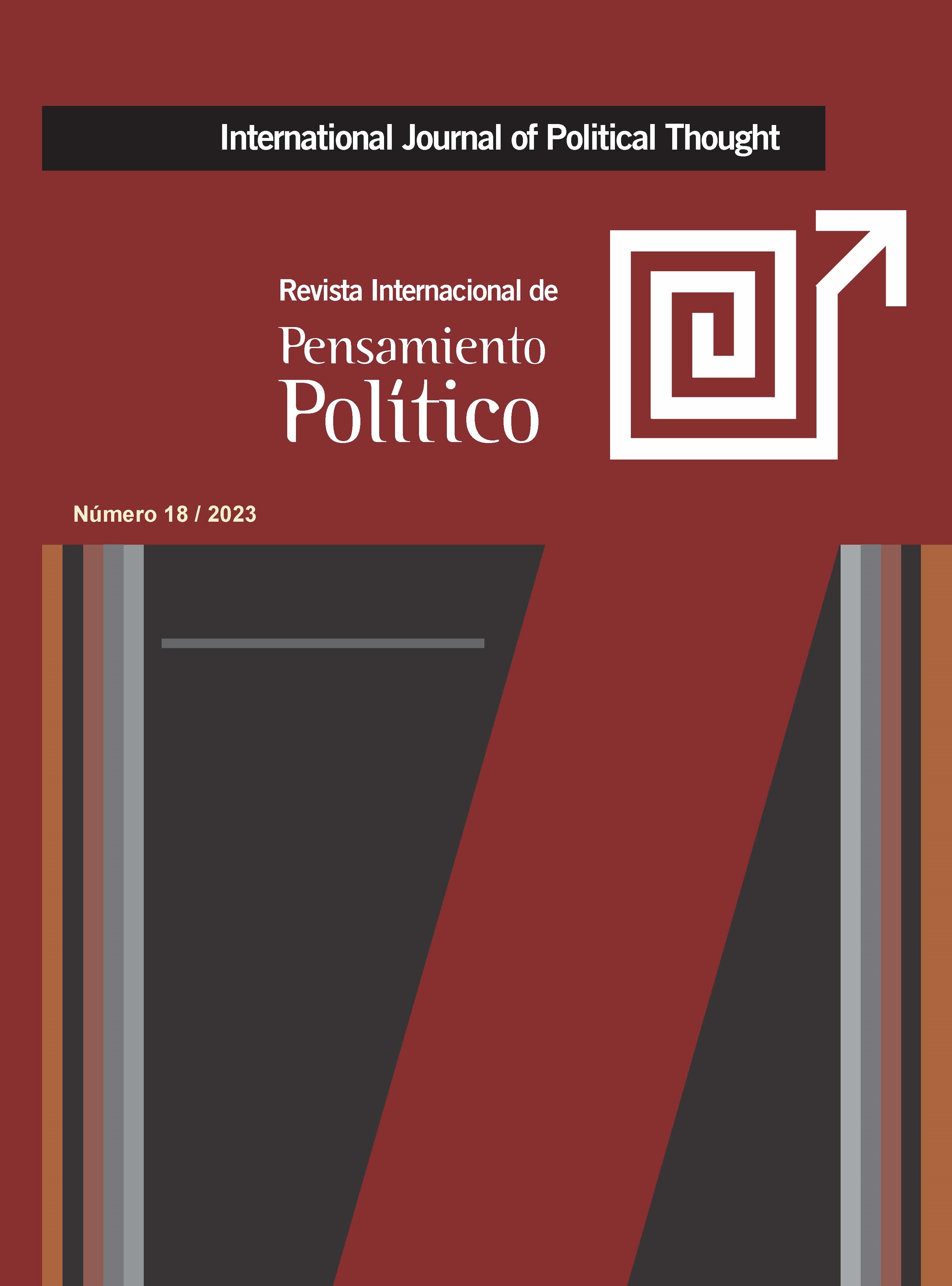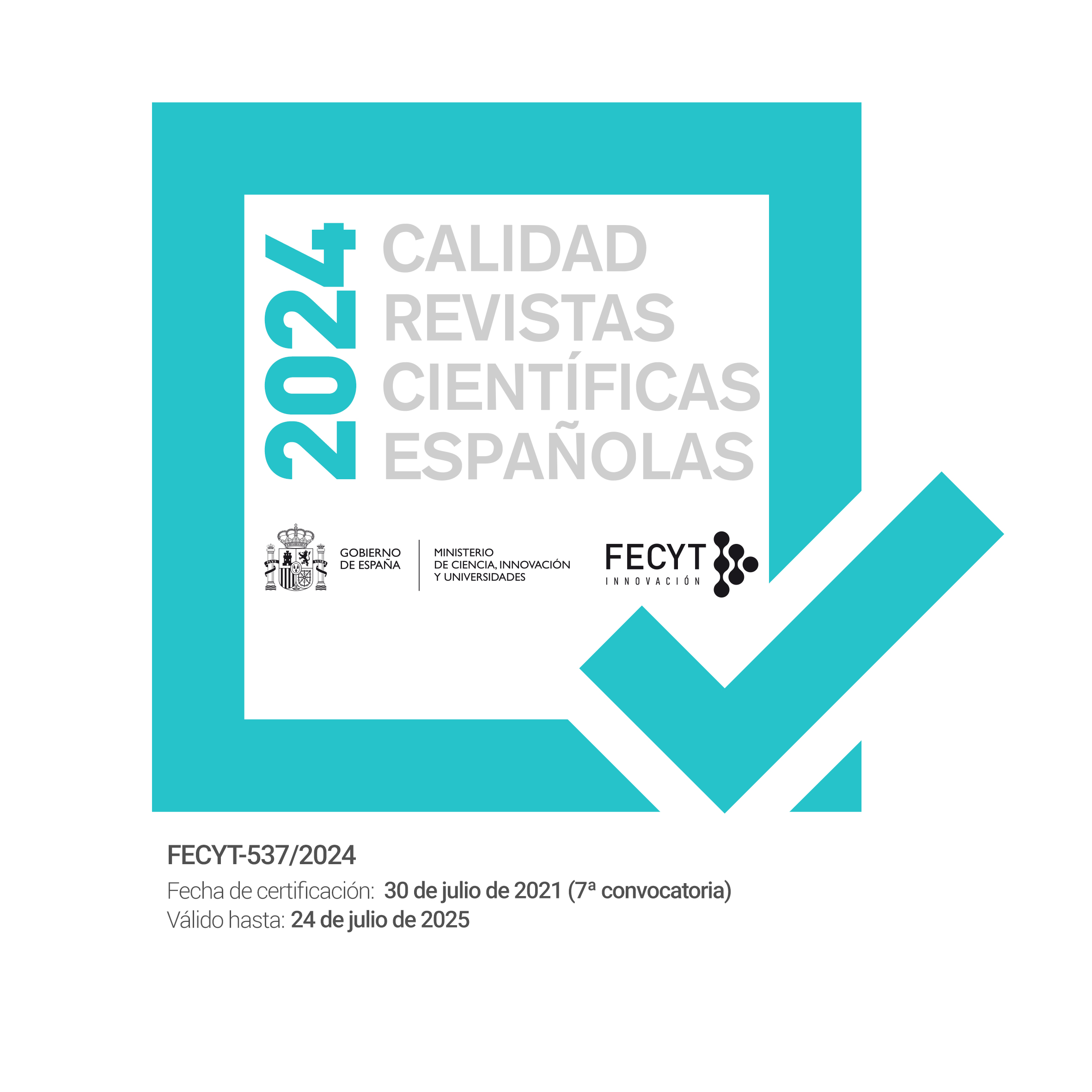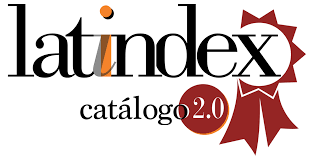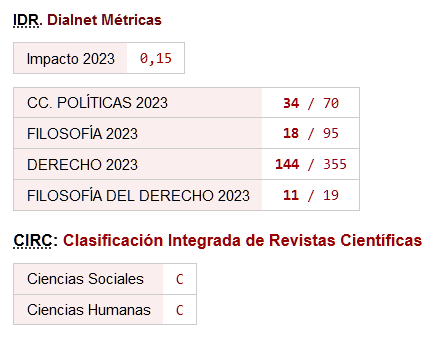Algorithmic discrimination for reasons of disability
DOI:
https://doi.org/10.46661/revintpensampolit.8103Keywords:
artificial intelligence, people with disabilities, algorithm, discriminationAbstract
The purpose of this paper is to analyze the situation of great vulnerability in which people with disabilities find themselves in the digital environment; on the one hand, it is a changing environment with a certain technical or operational complexity that, together with de lack of public concern in the formation in this group, causes a sharp digital divide that marginalizes it from the cyber environment and, on the other hand, this social group is a victim of violence and algorithmics bias: artificial intelligence systems seek to extinguish human diversity and uniqueness, forcibly redirecting them to the common parameters of the generality of citizens, so that they penalize or discriminate against people with disabilities in their digital interactions.
Downloads
References
ASÍS, R. de (2022). “Inteligencia Artificial, diversidad y derechos” en GARCÍA-ANTÓN PALACIOS, E. (dir.) Los derechos humanos en la inteligencia artificial: su integración en los ODS de la agenda 2030, Aranzadi, Pamplona.
AYLLÓN GARCÍA, J. D. (2020). “La inteligencia artificial como medio de difusión y control de las fake news”, en VILLEGAS DELGADO, C. y MARTÍN RÍOS, P. (dir.). El derecho en la encrucijada tecnológica. Estudios sobre derechos fundamentales, nuevas tecnologías e inteligencia artificial, Tirant lo Blanch, Valencia.
BALAGUER CASTEJÓN, F. (2022). La constitución del algoritmo, Fundación Manuel Giménez Abad de Estudios Parlamentarios y Estado Autonómico, Zaragoza.
BALMACEDA, T. (2020). “Inteligencia artificial y discapacidad: cuando los algoritmos son herramientas de exclusión”, https://acortar.link/SQZ3Hi, fecha de consulta, 29/04/2023.
BENARDELLI, B. (2006) «Accesibilidad al medio físico y comunicacional», en Discapacidad en Argentina: un diagnóstico de situación y políticas pública vigentes a 2005, Fundación Par, Buenos Aires.
BLANCO RODRÍGUEZ, C. G. (2022) “La discriminación en los algoritmos y cómo alcanzar el Objetivo de Desarrollo Sostenible 10.2”, en GARCÍA-ANTÓN PALACIOS, E (dir.) Los derechos humanos en la inteligencia artificical: su integración en los ODS de la Agenda 2030, Aranzadi, Pamplona.
CABRA DE LUNA, M. A. y SILVESTRE SÁEZ, T. (2021). “Las instituciones europeas como creadoras de derecho de la discapacidad”, en LORENZO GARCÍA, R. de, y PÉREZ BUENO, L.C (dir.) Nuevas fronteras del Derecho de la discapacidad, vol. II, Aranzadi, Pamplona.
CABERO ALMENARA, J. (2007). “Tecnología educativa: su evolución histórica y su conceptualización”, en CABERO ALMENARA, J. (coord.) Tecnología educativa, MacGraw Hill.
CELESTE DANESI, C. (2022). “Inteligencia artificial y Metaverso: el ordenamiento jurídico frente a los sesgos algorítmicos y los estereotipos de género en la realidad virtual”, en GARCÍA-ANTÓN PALACIOS, E. (dir.) Los derechos humanos en la inteligencia artificial: su integración en los ODS de la agenda 2030, Aranzadi, Pamplona.
Comunicación de la Comisión al Parlamento Europeo, al Consejo Europeo, al Consejo, al Comité Económico y Social Europeo y al Comité de las Regiones (2018), https://acortar.link/tWAft6, fecha de consulta: 08/04/2023.
HARLAN, H. (1986). «Public support for rehabilitation programs: the analysis of US Disability Policy», Disability, Handicap & Society, Vol. 1, Nº 2, pp. 121-137. https://doi.org/10.1080/02674648666780131 DOI: https://doi.org/10.1080/02674648666780131
INNERARIY, D., “Supremacismo digital”, El Correo, 30/04/2023.
KANT, I. (2005). Metafísica de las costumbres, Madrid.
LÓPEZ BARONI, M. J. (2019) “Las narrativas de la inteligencia artificial”, Revista de Bioética y Derecho, Nº 46, pp. 5-28. https://doi.org/10.1344/rbd2019.0.27280 DOI: https://doi.org/10.1344/rbd2019.0.27280
LUÁN RAMOS, D. (2021) “Discriminación interseccional, desarrollo del concepto, inclusión en la jurisprudencia del Sistema Internacional de Protección de Derechos Humanos, el concepto en la jurisprudencia nacional”, Estudios Constitucionales, Vol. 19, Nº2, pp. 38-70. https://doi.org/10.4067/S0718-52002021000200038 DOI: https://doi.org/10.4067/S0718-52002021000200038
MARTÍNEZ-PUJALTE, A-L. (2021) “El igual valor de la vida de las personas con discapacidad: amenazas y quiebras a un derecho fundamental” en LORENZO GARCÍA, R. de, y PÉREZ BUENO, L.C (dir.) Nuevas fronteras del Derecho de la discapacidad vol. II,), Aranzadi, 2021.
MOSCOSO, M. (2011) «La discapacidad como diversidad funcional: los límites del paradigma etnocultural como modelo de justicia social», Dilemata, Nº7, pp. 77-92.
MOLINA GALLARDO, V. (2016) “¿Neutrales y objetivos? Los algoritmos también son racistas y machistas”, La Vanguardia, https://acortar.link/teLpjS, fecha de consulta: 25/03/2023.
MORÁN REYES, A.A. (2019) “Las tecnologías convergentes (nanotecnología, biotecnología y las ciencias cognitivas) y su relación con la bibliotecología”, E-Ciencias de la Información, vol. 9, núm. 2, pp. 121-140. https://doi.org/10.15517/eci.v9i2.35897 DOI: https://doi.org/10.15517/eci.v9i2.35897
PÉREZ LUÑO, A. E. (2022) “El derecho ante las Nuevas tecnologías”, en VILLEGAS DELGADO, C. y MARTÍN RÍOS, P., (dir.) El derecho en la encrucijada tecnológica, Tirant lo Blanch, Valencia.
O´NEIL, C. (2017), Armas de destrucción matemática, Cómo el big data aumenta la desigualdad y amenaza la democracia, Capitan Swing, Madrid.
PIGEM, J. (2018). Ángeles o robots. La interioridad humana en la sociedad hipertecnológica, Fragmenta Editorial, Barcelona.
PRENSKY, M. (2001). “Digital Natives, Digital Immigrant”, On the Horizon, vol. 9, núm. 5. https://doi.org/10.1108/10748120110424816 DOI: https://doi.org/10.1108/10748120110424816
PONCE SOLÉ, J. (2019). “Inteligencia artificial, Derecho administrativo y reserva de humanidad: algoritmos y procedimiento administrativo debido tecnológico”, Revista General de Derecho Administrativo, Nº 50, pp. 1-52.
PRESNO LINERA, M.A. (2022). Derechos fundamentales e inteligencia artificial, Marcial Pons, Madrid. https://doi.org/10.2307/jj.4908196 DOI: https://doi.org/10.2307/jj.4908196
QUINN, G. (2021). Informe del Relator Especial sobre los derechos de las personas con discapacidad, https://acortar.link/RbWAM5, fecha de consulta: 18/02/2023.
REY MARTÍNEZ, F. (2008). “La discriminación múltiple, una realidad antigua, un concepto nuevo” Revista Española de Derecho Constitucional, Nº 84, pp. 251-283.
SANTAYANA, G. (2006). «El peso de la historia: la evolución de los modelos de diversidad funcional», en PALACIOS, A. y ROMAÑACH, J. (dir) El modelo de la diversidad: la bioética y los derechos humanos como herramientas para alcanzar la plena dignidad en la diversidad funcional, Diversitas, Madrid.
SERRANO, S. (2019) ¿Qué es la paradoja de la privacidad? https://acortar.link/jzH2ps, fecha de consulta 20/02/2023.
SANTOS REGO, M. A. et al. (2012) Web 2.0 y redes sociales. Implicaciones educativas, ponencia presentada al XXXI Seminario Interuniversitario de Teoría de la Educación, “Sociedad del Conocimiento y Educación”, UNED, Plasencia, pp. 123-148, https://acortar.link/aBNLxc, fecha de consulta: 12/03/2023.
SALOMÉ RESURRECCIÓN, L.M. (2017) “La discriminación y algunos de sus calificativos: directa, indirecta, por indiferenciación, interseccional (o múltiple) y estructural”, Pensamiento constitucional, Nº 22, pp. 255-290.
SORIANO ARNAZ, A. (2021). “Decisiones automatizadas y discriminación: aproximación y propuestas generales”, Revista General de Derecho Administrativo. Nº 56, pp. 1-45.
TABOADA. M., ROLDÁNC, J. J. Y BARRIENTOS, A., “Interfaz inteligente y adaptativa para personas con discapacidad”, Actas de las XXXVII Jornadas de Automática, Facultad de Informática, Universidad Complutense de Madrid, pp. 483-490. DOI: https://doi.org/10.17979/spudc.9788497498081.0483
TAPSCOTT, D. (2008). Grown up digital: How the net generation is changing your world, McGraw Hill, EEUU.
VILLAGRA, J. (2021). “Robótica e inteligencia artificial más humanas y sostenibles”, Papeles de economía española, Nº 169, pp. 165-177.
WHITTAKER et al. (2019). Informe sobre Discapacidad, sesgo e Inteligencia Artificial, AI Now Institute at NYU, 2019, https://acortar.link/da6kFt, fecha de consulta: 23/03/2023.
ZUDDAS, P., (2022) “Decisión algorítmica y principio de igualdad”, Revista General de Derecho Administrativo, Nº 60, pp. 1-12.
Downloads
Published
How to Cite
Issue
Section
License
Copyright (c) 2023 Héctor Álvarez García

This work is licensed under a Creative Commons Attribution-NonCommercial-ShareAlike 4.0 International License.
Open access policy
Free and open access is allowed to any interested party to all the contents of the journal issues, free of charge, being able to print and transfer all the articles, with the only condition of specifying the source and authorship.
The journal: a) does not charge authorship costs for the processing of articles or for their submission, b) maintains copyright for authors without restrictions, c) facilitates authors to keep their publication rights without limitations.
The International Journal of Political Thought is an original work of the Laboratory of Political Ideas and Practices of the Pablo de Olavide University. All articles included in the Journal are original work of their respective authors. This Journal is freely offered to the scientific and academic community at no cost and releases the contents according to the license "Attribution-NonCommercial-ShareAlike 4.0 CC BY-NC-SA" of the Creative Commons project available in the following url: https://creativecommons.org/licenses/by-nc-sa/4.0/legalcode
If you wish to translate or compile any of the articles available here, please contact us at contacto













 ISSN: 1885-589X
ISSN: 1885-589X  Universidad Pablo de Olavide
Universidad Pablo de Olavide